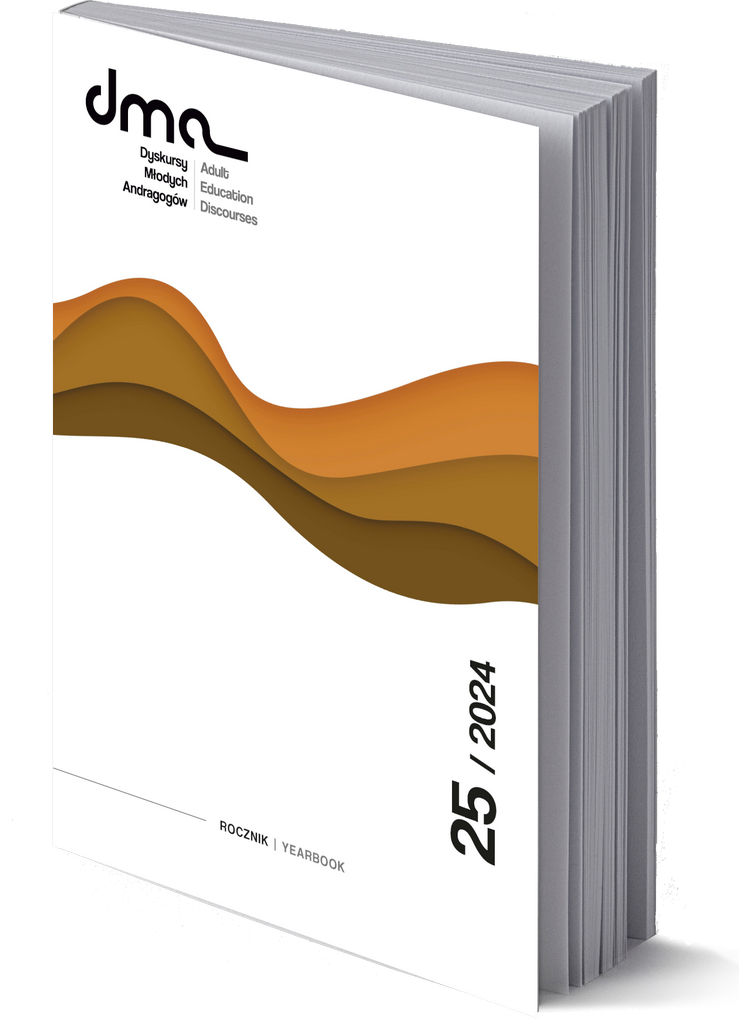Główna treść artykułu
Abstrakt
The text relates the detached relationship the author had as a child and young man to the religious practices of his family of small farmers, lay preachers and small government employees in central Germany. The author describes in particular the central importance for his own intellectual development of the German Lutheran theologian Rudolf Karl Bultmann, a major figure of early-20th-century biblical studies. Through his intense occupation with Bultmann’s ideas, the author as a young man freed himself from the grip of family piety and developed a sceptical attitude towards intellectual mainstreams and overly rigid professional settings which remained a formative characteristic of his practice as a researcher. He sees in his trajectory dramatic social ascent entailing loss of social “home”, a result of ‘reflexive modernisation’ – which he sees as a very theoretical term for self-organised learning. Despite harbouring scepticism regarding certain late modern concepts of individualization, the author remains attached to the idea of a Community of politically committed researchers who remain interested in the civil shaping of world society (and may occasionally achieve success).
Słowa kluczowe
Szczegóły artykułu

Utwór dostępny jest na licencji Creative Commons Uznanie autorstwa 4.0 Międzynarodowe.
Bibliografia
- Alheit, P. (1994) Zivile Kultur. Verlust und Wiederaneignung der Moderne. Frankfurt a.M./New York: Campus.
- Alheit, P. (1997a) “Individuelle Modernisierung” – Zur Logik biographischer Konstruktion in modernisierten modernen Gesellschaften. In: S. Hradil (ed.) Differenz und Integration. Die Zukunft moderner Gesellschaften. Verhandlungen des 28. Kongresses für Soziologie 1996 in Dresden. Frankfurt a. M./New York: Campus, 941-952.
- Alheit, P. (1997b) Die Modernisierung biographischer Handlungsumwelten und die Transformation gewachsener Wissensbestände: Theoretische Aspekte einer Pädagogenkarriere. In: D. Nittel & W. Marotzki (eds.) Berufslaufbahn und biographische Lernstrategien. Eine Fallstudie über Pädagogen in der Privatwirtschaft. Hohengehren: Schneider, 36-57.
- Alheit, P. (2022) Autobiography and social climbing: The inevitable compulsion on self-reflexivity and its variants. European Journal for Research on the Education and Learning of Adults[online], 13(3), 301-313. Available at: https://doi.org/10.3384/rela.2000-7426.4193.
- Alheit, P. (2024) Biographizität. Zur Grammatik von Selbstbildungsprozessen in der späten Moderne. Frankfurt a. M: Campus (in print).
- Beck, U. (1986) Risikogesellschaft. Auf dem Weg zu einer anderen Moderne. Frankfurt a. M.: Suhrkamp.
- Bourdieu, P. (1983) Die feinen Unterschiede. Kritik der gesellschaftlichen Urteilskraft. Frankfurt a.M.: Suhrkamp.
- Eder, K. (1989) Jenseits der nivellierten Mittelstandsgesellschaft: das Kleinbürgertum als Schlüssel einer Klassenanalyse in fortgeschrittenen Industriegesellschaften. In: K. Eder (ed.) Klassenlage, Lebensstil und kulturelle Praxis: Beiträge zur Auseinandersetzung mit Pierre Bourdieus Klassentheorie. Frankfurt a. M.: Suhrkamp, 341-393.
- Entschieden für Christus [online]. Available at: at https://www.ec.de [10.05.2023].
- Hoffmann, N. & von Rein, A. (eds.) (1998) Selbstorganisiertes Lernen in (berufs) biographischer Reflexion. Klinkhardt: Bad Heilbrunn.
- Maturana, H.R. & Varela, F.J. (1975) Autopoietic Systems. Biological Computer Laboratory. Report No. 9.4. Urbana: University of Illinois.

